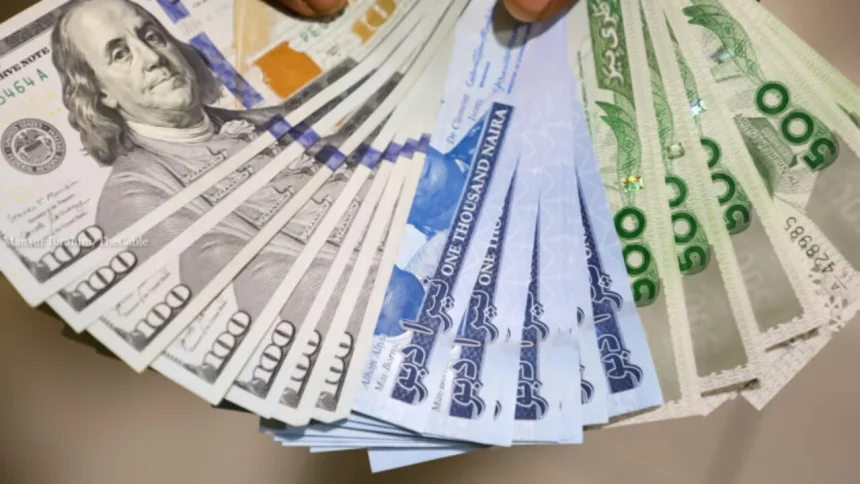The Federal Government of Nigeria has initiated its Series I Domestic USD Bond, aiming to generate at least $500 million from both local and international investors.
According to Nairametrics, the government aspires to exceed this initial target, seeking up to $1 billion in subscriptions through this bond auction. This effort is part of a broader bond program with a total potential size of up to $2.0 billion, which may be increased at the issuer’s discretion.
This bond issuance comes at a challenging time, as five of Nigeria’s Eurobonds have recently been ranked among the worst performers in a Bloomberg index of emerging and frontier sovereign debt.
Despite this, the federal government is optimistic about the Series I Domestic USD Bond, which is designed with a five-year tenor, offering a medium-term investment opportunity for those seeking stable returns.

The bond’s coupon rate is benchmarked against comparable Federal Government of Nigeria (FGN) Eurobond yields, ensuring that returns are competitive and aligned with international market standards.
READ ALSO:
Financial Rules Compel Chelsea to Sell Academy Talent, Says Maresca
Investors will benefit from semi-annual interest payments, providing regular income streams and enhancing the bond’s attractiveness. At maturity, the bond offers bullet repayment in US dollars, ensuring the full repayment of the principal amount after the five-year term.
This investment opportunity is open to a wide range of participants, including Nigerians and non-Nigerians resident in Nigeria, Nigerians in the diaspora, and Qualified Institutional Investors.
The bond also qualifies as an investment option for pension funds, broadening its appeal and ensuring widespread participation. The minimum subscription amount is $10,000, with additional investments accepted in multiples of $1,000.
The offer period for the bond is set for August 2024, with specific opening and closing dates to be announced. Settlement will occur within the same month, aligning with the offer period. According to the official circular, the net proceeds from the bond will be ring-fenced and invested in critical sectors as approved by the President on the recommendation of the Minister of Finance, subject to appropriation by the National Assembly.

The circular states: “As stated in the Presidential Executive Order, the net proceeds of the bonds and its accretion shall be ring-fenced and invested in critical sectors to be approved by the President on the recommendation of the Minister of Finance, subject to appropriation by the National Assembly (‘NASS’).“
While the government has yet to specify which sectors will benefit from this financing, the bond offers several fiscal advantages, including exemption from income tax on the interest payable to bondholders. Additional exemptions are detailed in a notice issued by the Federal Inland Revenue Services (FIRS).
To provide liquidity and accessibility, the bond will be listed and admitted for trading on the Nigerian Exchange Limited (NGX) and the Financial Market Dealers Quotation (FMDQ). This listing will enable a broad range of investors to trade the bond, further enhancing its appeal and ensuring a robust secondary market.
READ ALSO:
Julian Alvarez to Leave Man City in Record £82m Transfer to Atletico Madrid
Wale Edun, Nigeria’s Minister of Finance and Coordinating Minister of the Economy, announced that the federal government plans to issue $500 million in domestic foreign currency-denominated bonds within the next three to four weeks. He clarified that there are no current plans to raise Eurobonds, pending the success of this domestic issuance.

The International Monetary Fund (IMF) has raised concerns about this strategy, cautioning that issuing domestic dollar-denominated bonds might increase pressure on the naira and elevate costs related to naira securities.
Additionally, the IMF warned that introducing these bonds to improve dollar liquidity in the official market could fragment the market.

